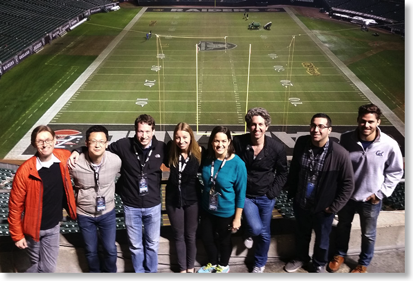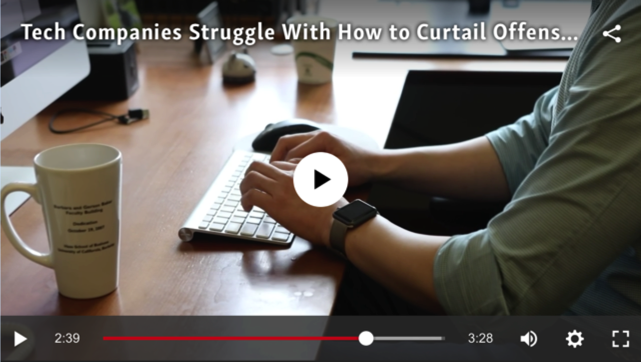Voice of America: Curtailing Offensive Speech and the Fragility of Common Sense
Aug 20, 2018
Last week I had a very interesting conversation with Michelle Quinn from Voice of America on the struggle of tech companies to curtail offensive speech. Here is the article and the accompanying video. My primary contribution is in highlighting the challenge with real-world operationalizations of concepts like "bias" and "discrimination".
On the one hand, the bias against certain groups is so obvious as to be common sense. On the other hand, get outside of these "common sensical" categories and things get really controversial, really fast. Are rural Americans biases against? What about working class? Is there pervasive bias against caucasians?
I think most of us have heard these and similar claims. So the question I would like to pose is, can we validate these claims in some way? Even if we find some of these claims offensive, and the people making these claims odious, can we nevertheless test these claims rigorously, and either validate or falsify them in a fact-based, data-driven manner?
Since our forthcoming paper on the topic is still under embargo, I will leave things a bit vague here, and just say that I think we are beginning to develop tools that may finally answer these difficult questions. So, as lame as it might sound, stay tuned...
On the one hand, the bias against certain groups is so obvious as to be common sense. On the other hand, get outside of these "common sensical" categories and things get really controversial, really fast. Are rural Americans biases against? What about working class? Is there pervasive bias against caucasians?
I think most of us have heard these and similar claims. So the question I would like to pose is, can we validate these claims in some way? Even if we find some of these claims offensive, and the people making these claims odious, can we nevertheless test these claims rigorously, and either validate or falsify them in a fact-based, data-driven manner?
Since our forthcoming paper on the topic is still under embargo, I will leave things a bit vague here, and just say that I think we are beginning to develop tools that may finally answer these difficult questions. So, as lame as it might sound, stay tuned...
Can neuromarketing shed its ethically dubious reputation?
Feb 24, 2016

Beyond the research question itself, it got me thinking again about the thorny ethical issue concerning neuromarketing.
As someone who came to marketing as an outsider, I can relate pretty well to those concerns. Indeed, for the majority of my time at Haas, my research mostly concentrated on basic science issues around economic and consumer decision-making. Part of this is due to the demands of being a junior faculty, but another part is the discomfort that I feel myself at the ostensible goals of neuromarketing.
However, it's become increasingly clear to me that, like a number of other challenges facing neuromarketing (some of which I talked about here), this is reflective of the mixed feelings that society as a whole feels for marketing, and businesses in general. Often the goals of businesses are framed as being in direct opposition to those of the consumer. This affects even the language that businesses use in talking about consumers, for example war metaphors such as “we take aim at our target market” or “we win customers".
It shouldn't be all that surprising then that there is unease about marketers having better tools in understanding our wants or predicting our behavior. Just consider the brouhaha over the Facebook emotion study.
Marketing strategists talk all the time about “aligning interests of stakeholders”. It’s time neuromarketing puts that into practice.
But it doesn’t have to be that way. In fact, there are many areas where consumer and marketers goals are quite compatible. When people talk about Apple understanding and anticipating their needs, they don’t mean that in a pejorative way.
In fact, it's positively liberating when these conflicts of interests start disappearing. I don't think I'm being naive when I say that everyone in this case wants the fans to have a good time, the Raiders, the fans themselves, and us researchers! Whatever comes out of these studies (that’s for another entry), nobody should be unhappy (except the 49ers… I kid, I kid! I, erm, like Chip Kelly?).
Marketing strategists talk all the time about “aligning interests of stakeholders”. It’s time neuromarketing puts that into practice.
